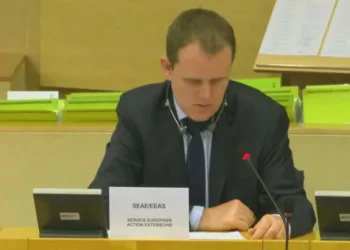On the initiative of the ruling Georgian Dream party, amendments have been made to the law “On Broadcasting”. The main change is the expansion of the powers of the National Communications Commission in terms of regulating the “incitement to hatred” clause.
The amendments are authored by MPs from the parliamentary majority. The bill will be adopted in an accelerated procedure. In the first reading it was adopted on October 18 with 79 votes in favor, four MPs against.
Experts see these changes as a potential restriction of freedom of speech in the country. The package of changes was controversial even at the initiation stage, but the version adopted in the first reading is even more alarming.
Based on the bill, the decisions made by the broadcaster’s self-regulatory body regarding the programs containing hate speech and calls to terrorism will be appealed to the National Communications Commission.
The explanatory note says that “the amendments are aimed at improving Georgia’s Law on Broadcasting in accordance with the recommendation of the European Commission and creating an effective mechanism to prevent the dissemination of programs and advertisements containing calls to terrorism and incitement to hatred”.
“We have no political interest, it is the directive of the European Union that is being fulfilled – we proposed three options and this option has been chosen,” Irakli Kobakhidze, Chairman of the Georgian Dream party, said regarding the amendments to the Broadcasting Law.
He claimed that the draft law has been sent to the European Union, and out of three options, they chose the one that is now being considered by the Parliament.
“As for these regulations, everything is based on the EU directive from beginning to end. This draft law was sent to the European Union, we offered options, they chose one of the three and we adopted it, that’s the end of the story. It is a directive of the European Union. As for obscenity, that record is not new, and it remains in the law. We heard obscenity a lot from TV broadcasts in the past, this is a matter of culture and we don’t interfere in it.
“I don’t even know the details of this bill – we have no political interest, it is an EU directive that is being implemented,” Kobakhidze affirmed.














